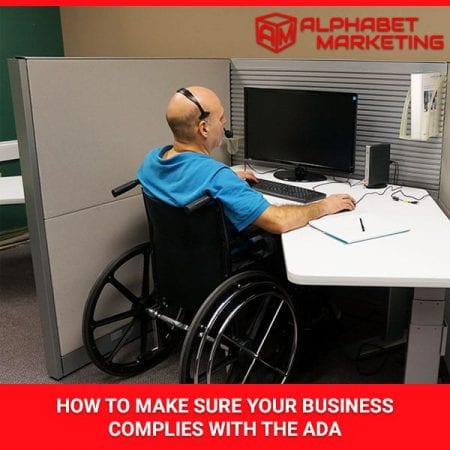 The Americans with Disabilities Act became law in 1990 and it aims at making sure that people with disabilities share the same rights and opportunities as any other US citizen. It also gives civil right protections to people suffering from disabilities just like those provided to individuals, considering their race, color, sex, origin, age, and religion.
The Americans with Disabilities Act became law in 1990 and it aims at making sure that people with disabilities share the same rights and opportunities as any other US citizen. It also gives civil right protections to people suffering from disabilities just like those provided to individuals, considering their race, color, sex, origin, age, and religion.
United States-based organizations are required, according to ADA, to have reasonable accommodations for people with recognized disabilities. Obviously, if they fail to comply, they are subject to legal effects.
However, ADA compliance is not required for all businesses. To be more specific, we’re talking about those which are on the small side or don’t cater to the public. But a lot of people can’t actually make the differences and don’t exactly know if their company falls under the act.
Below you will find a few guidelines explaining how the differentiation works, in order to help you better understand if you need to make any adjustments to your existing business.
Presuming that we’re addressing to small private business owners, you should be aware of Title I and Title III of the ADA. Still, don’t forget that the act, at its core, prohibits all forms of discrimination based on disability, but also requires proper accommodations, whether we’re talking about the public or private sector.
Title I of the ADA compliance rules refers to private employment and requires eligible businesses to assure employees receive equal opportunities to enjoy privileges of employment. Also, it prohibits discrimination based on an employee’s disability.
The title has three different ways of defining an employer. To be more specific, we’re talking about a person:
- Engaged in any industry that affects commerce
- Has 15 or more full-time employees, working daily
- For at least 20 or more than 20 calendar weeks, during a year
Basically, this means that if you have less than 15 employees or you’re in business less than 20 weeks per year, you should worry about ADA compliance, Title I. Other exceptions are businesses which are fully owned by federally recognized Native American tribes, as well as tax-exempt private membership clubs.
As for Title III, it moves the focus on public and private entities, considered “public accommodations”, but also demands that businesses should discriminate their customers based on disability, as well as providing reasonable access.
Under the incidence of this title fall the following businesses, according to the federal law:
- Hotels, motels, or inns
- Restaurants and bars
- Grocery stores and bakeries
- Hardware stores or sales/retail outlets
- Banks
- Dry cleaning businesses or Laundromats
- Offices of accountants and lawyers
- Offices providing health care
- Public transportation
- Recreation venues
- Schools
- Centres for social services
- Gyms or sports venues
Basically, any business which serves the public can be considered a public accommodation and must comply with Title III of the ADA. As for the exceptions, the Act mentions religious organizations and private clubs.
Last but not least, a business owner should remember that the concept of ‘federal disability law’, under the American Disabilities Act, is just one part of disability law in any state across the country. Also, there are corresponding state laws that completely prohibit any type of discrimination based on disability, whether it’s in public accommodations or in employment.
Of course, some disability laws can be very complicated to fully understand them, so it’s highly recommended to consult a lawyer specialized in this matter, just to make sure that your company doesn’t have any problems caused by ADA compliance.
Picture Credit: dickusvi
